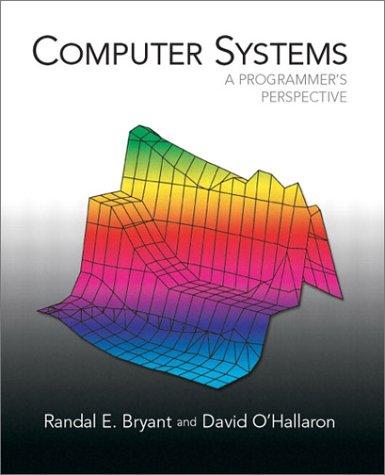Hardcover, 1008 pages
English language
Published Aug. 13, 2002 by Prentice Hall.

Hardcover, 1008 pages
English language
Published Aug. 13, 2002 by Prentice Hall.
For Computer Organization and Architecture and Computer Architecture courses. Often, computer science and computer engineering curricula don't provide students with a concentrated and consistent introduction to the fundamental concepts that underlie all computer systems. Traditional computer organization and logic design courses cover some of this material, but they focus largely on hardware design. They provide students with little or no understanding of how important software components operate, how application programs use systems, or how system attributes affect the performance and correctness of application programs. - A more complete view of systems - Takes a broader view of systems than traditional computer organization books, covering aspects of computer design, operating systems, compilers, and networking, provides students with the understanding of how programs run on real systems. - Systems presented from a programmers perspective - Material is presented in such a way that it has clear benefit to application programmers, students learn …
For Computer Organization and Architecture and Computer Architecture courses. Often, computer science and computer engineering curricula don't provide students with a concentrated and consistent introduction to the fundamental concepts that underlie all computer systems. Traditional computer organization and logic design courses cover some of this material, but they focus largely on hardware design. They provide students with little or no understanding of how important software components operate, how application programs use systems, or how system attributes affect the performance and correctness of application programs. - A more complete view of systems - Takes a broader view of systems than traditional computer organization books, covering aspects of computer design, operating systems, compilers, and networking, provides students with the understanding of how programs run on real systems. - Systems presented from a programmers perspective - Material is presented in such a way that it has clear benefit to application programmers, students learn how to use this knowledge to improve program performance and reliability.